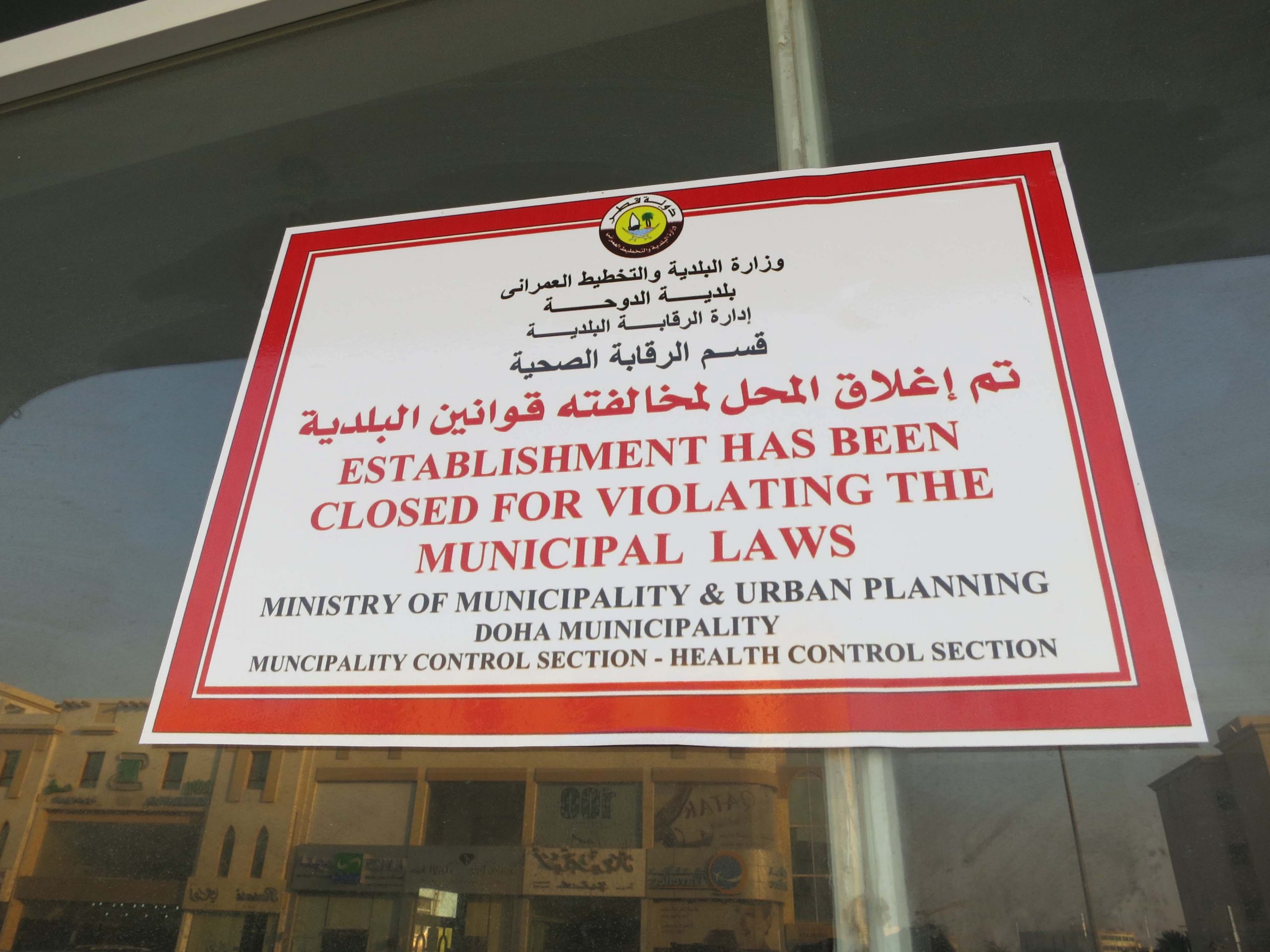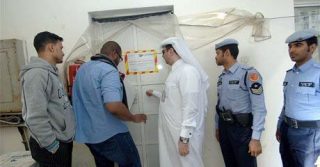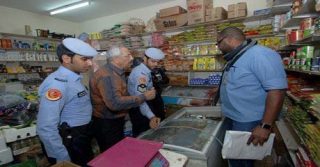All photos courtesy of MMUP
Government officials have ordered the closure of 85 food establishments in Qatar’s Industrial Area for violating various health requirements, the Ministry of Municipality and Urban Planning (MMUP) has announced.
As part of an ongoing inspection campaign to improve health and hygiene standards in eating outlets across Qatar, members from the health control department of Doha Municipality, accompanied by Internal Security Force (Lekhwiya) officers, conducted spot checks on dozens of premises in the Industrial Area this week.

Facilities closed by the authorities included refreshment stalls selling tea, juice, sandwiches and snacks; as well as food stores and industrial kitchens that provided mass catering, due to “the violation of health requirements and the standards of food handling and trading,” the MMUP said in a statement.
Many of these eateries were operating from rooms inside labor camps and apparently did not have the requisite licenses.
The Peninsula reports Mohamed Al Sayed, head of food monitoring at Doha Municipality, as saying that while the operators were fined, no legal action was taken against them “for they were simple workers.”
Al Sayed added that there were no reported cases of food poisoning.
Safety campaign
The latest closures follow a similar crackdown launched this time last year, when 175 cafes and food establishments were closed for similar reasons.

In the last year, the MMUP has also secured commercial operating licenses for 155 cafeterias in the Industrial Area.
But until new, licensed premises can be set up in the place of those that closed, many workers in the area may find it harder to access affordable food.
And as Qatar’s semi- and unskilled workforce continues to grow in the coming years, there will be continued pressure on authorities to provide more shops, cafeterias and food storage facilities that meet health regulations.
Mostly brought over on single status from South Asian countries, these workers are required to live in dormitories in labor camps in and around the Industrial Area as they are not permitted to live in residential areas of Doha.
But the infrastructure struggles to cope with the increasing resident population in the district, with reports of sewers flooding, poor road conditions and regular flooding during rainy periods.
Food watchdog
This week’s closures are part of an intensified campaign in Qatar to take action against food establishments that flout the regulations, a move led by the MMUP and the Supreme Council of Health (SCH).
Also this week, the SCH said it is planning to set up a single public authority that would be responsible for all aspects of food safety in the country.
The final plans for the Qatar Public Authority for Food Safety are currently being drawn up and will be submitted to the Council of Ministers, Director of Public Health Mohammed Hamad al-Thani is quoted in Qatar Tribune as saying.

Under the current law No. 8 of 1990 Regulation of Human Food Control, the SCH, MMUP and Ministry of Environment are jointly responsible for ensuring establishments comply with regulations.
At the same time, the SCH is working to introduce an electronic system that would pre-register and approve food products prior to their import, al-Thani said.
Recently, a number of food items have been withdrawn from the supermarket shelves in Qatar for failing to meet standards. Last week, the MMUP announced that Loyd Grossman Bolognese sauce was withdrawn over fears it contained red wine.
And in October this year, three popular brands of pre-packaged deli meats were also pulled as they didn’t have appropriate halal certification.
Thoughts?










